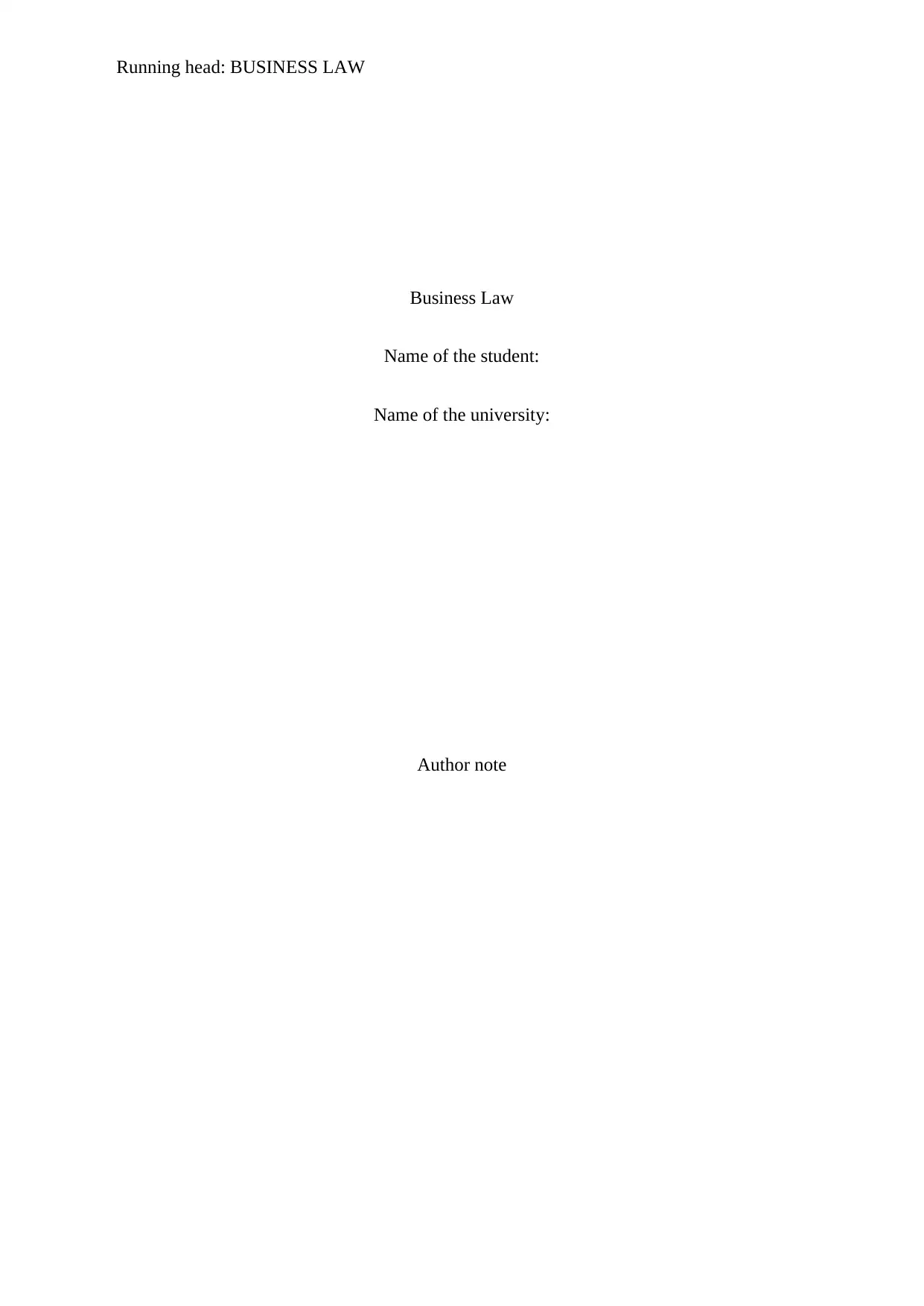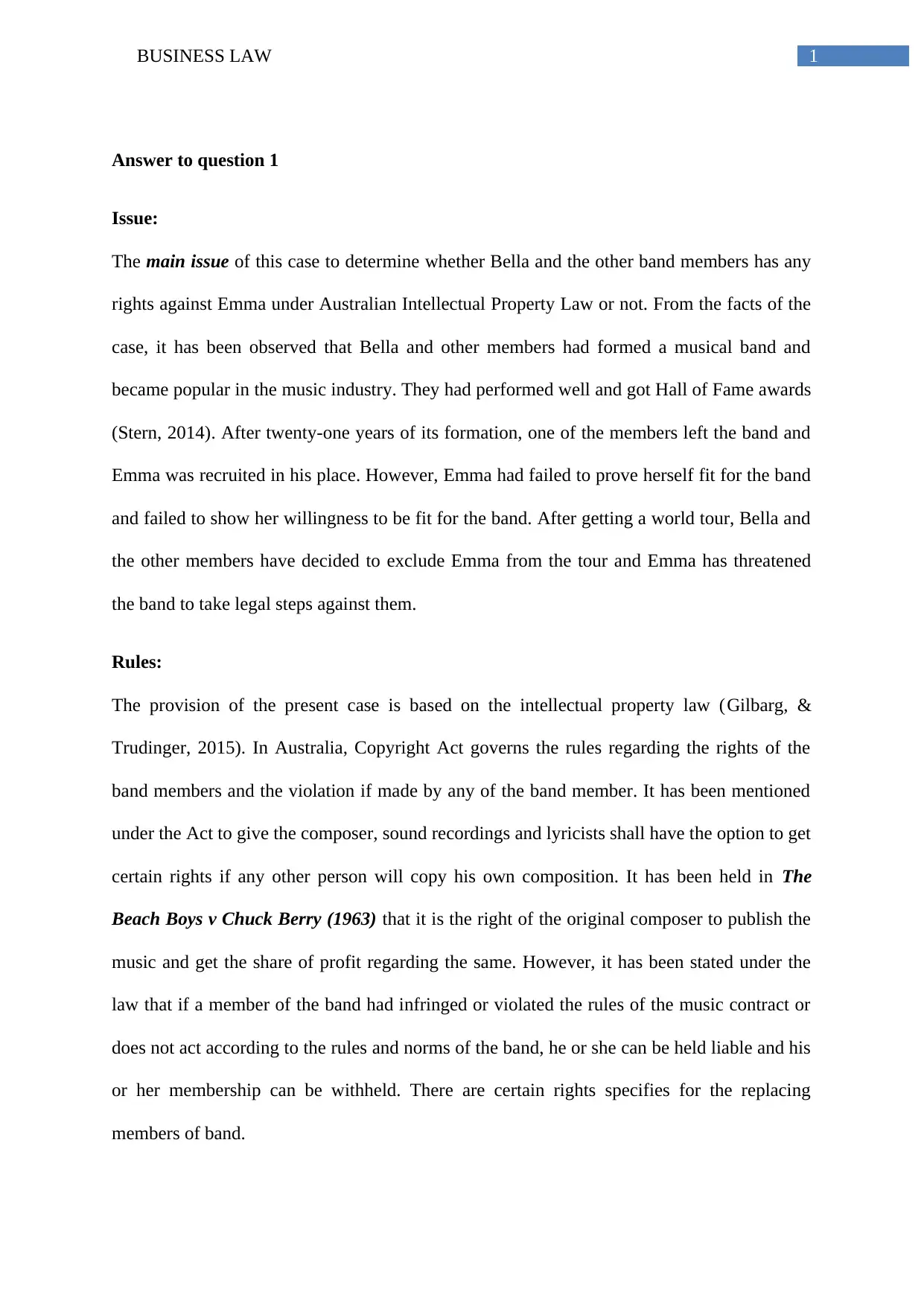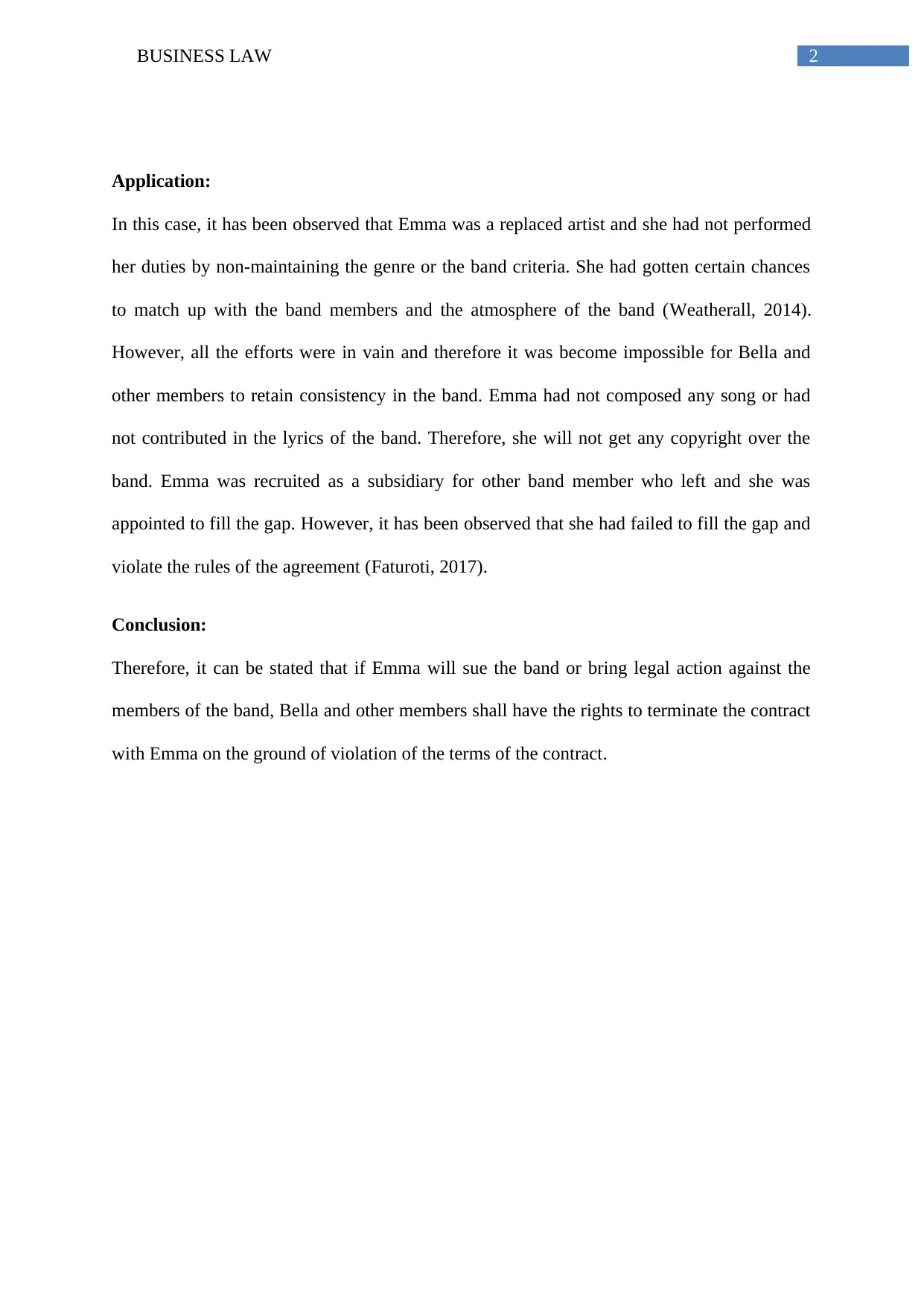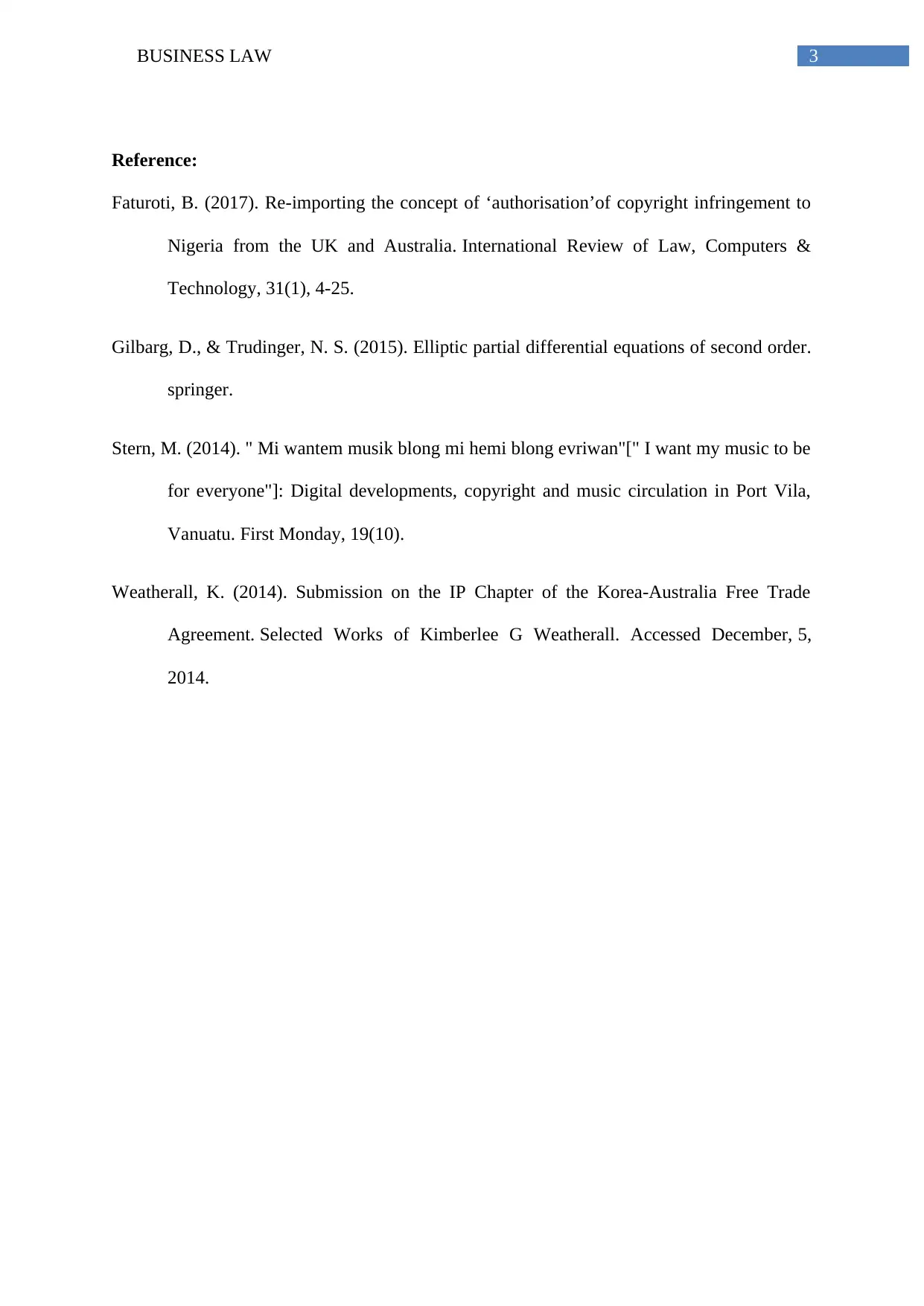Analysis of Intellectual Property Rights in Band Membership Disputes
VerifiedAdded on 2020/04/21
|4
|732
|90
Case Study
AI Summary
The case study examines whether Bella and other band members have any rights against Emma under Australian Intellectual Property Law following her recruitment into a musical band that had previously gained fame. After joining the band post the departure of an original member, Emma failed to meet the band's performance criteria and was subsequently excluded from a world tour. Threatening legal action, Emma challenges her exclusion on grounds of intellectual property rights. The assignment explores Australian Copyright Act provisions, which stipulate rights for composers, sound recordings, and lyricists, and outlines conditions under which band members' agreements can be violated, leading to termination. Ultimately, the case concludes that due to Emma's failure to contribute substantively or adhere to contractual obligations, she would not succeed in a legal claim against the band. The study highlights the balance between individual member rights and collective artistic integrity within bands.
1 out of 4











![[object Object]](/_next/static/media/star-bottom.7253800d.svg)